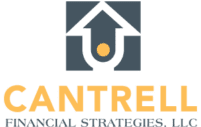One of the biggest challenges we face as advisors is helping people understand how they can live a life of enjoyment without running out of money. There are several reasons for this:
- People are living longer – the amount of time you can expect to be retired is now easily 30 years or more
- Pension plans and social security – often thought of as the basis for a secure retirement income – have become secondary considerations in retirement income planning. Only 40% of U.S. workers have a pension plan and social security is questionable for anyone who isn’t already receiving it
- Investments are more difficult to feel confident about. In the late 90’s the stock market grew almost 20% per year for five consecutive years. Since April 2000 there have been two major declines. During 2000 – 2002 the market dropped more than 33%. In 2008 – 2009 it dropped another 24% over the two years. The 24 hour TV coverage of EVERYTHING (especially everything negative) has raised everyone’s awareness of how well or how badly investments perform. And it is daily if not hourly performance that is reported. The motive behind this reporting is not better usable information, because most people don’t react to this information daily or even monthly.
- We are healthier in general now during retirement and often that means we want to “do things”. And “things” cost money. Consequently we are at risk for withdrawing too much in our early retirement years. Most of my clients ask me to guide their decision making as to how much they can afford to spend annually. Rule of thumb analyses have shown between 4% and 5% of your total retirement pot of money should be able to be withdrawn annually without jeopardizing your portfolio. This can not be done blindly however, without considering changes to the world economy and your personal situation.
And these are just a few of the hurdles. There are many more risks to retirement sovereignty that I will write about in the next few weeks.
Solutions to Making the Money Last
And so what are the solutions? Diligence, responsibility, education and ongoing monitoring are absolute requirements.
Diligence and responsibility pertains to your willingness to save and invest, plan, spend and adjust according to your ability to do it without risking your security.
Education is learning about your own particular situation and challenges. And becoming at least moderately educated about investments, tax issues, and income strategies. A trusted advisor can help you with this immensely.
And finally, monitoring means these issues never go away. Prudence requires you to be ever aware of the issues and changes in your personal situation that may require you to adjust your plans.
Unfortunately most people don’t have the inclination, education, or expertise to do the necessary WORK on their own to build and maintain a secure retirement position. Finding that individual or individuals who you trust and can guide your decisions is the best way to address this issue. Looking at these and other financial risks and describing plausible solutions will be an ongoing theme in my writings.
